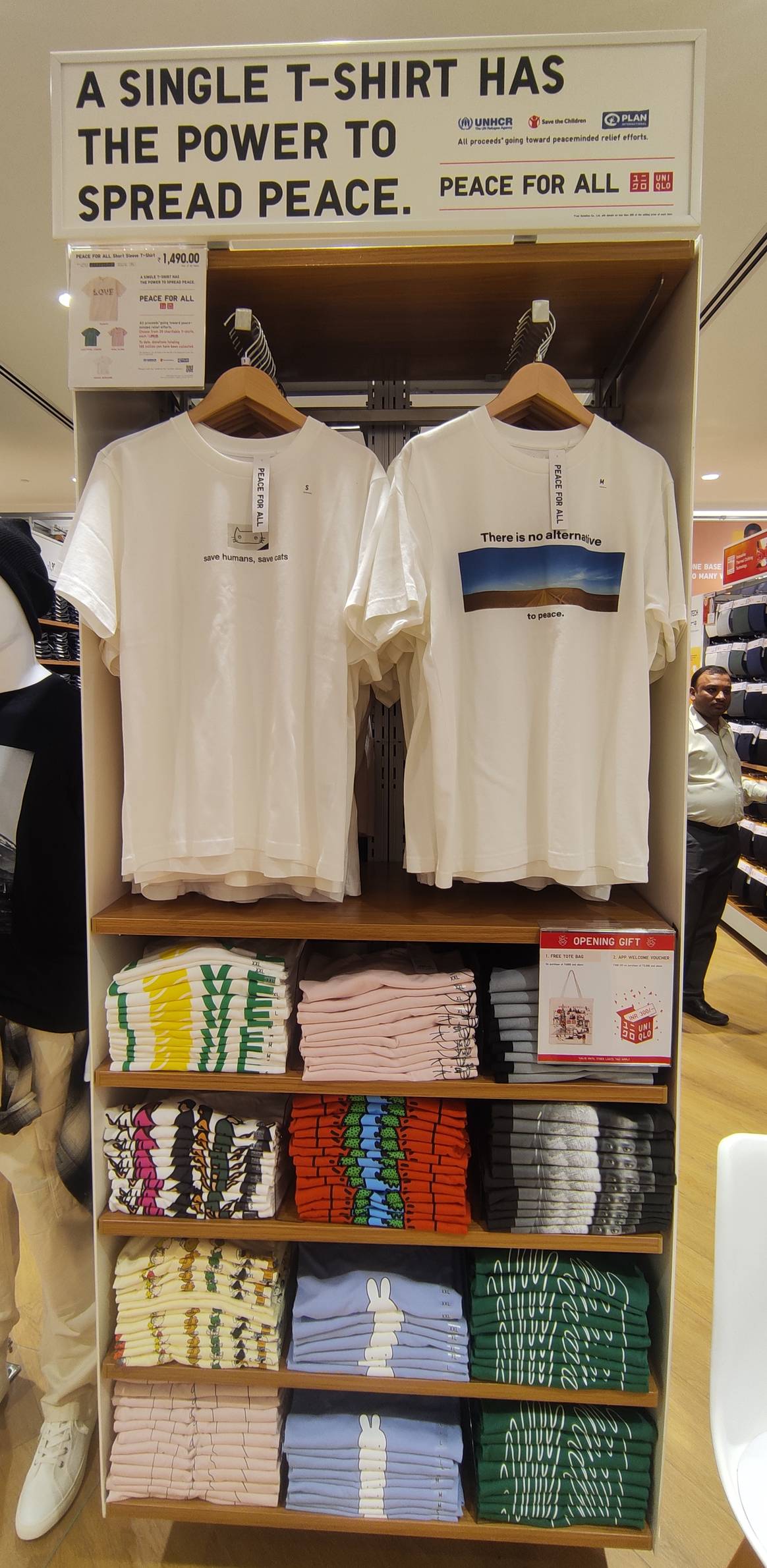Engaged in the clothing industry for 20 years.

Uniqlo on expansion in India, preview of first Mumbai store
After a four year wait, Japanese apparel retailer Uniqlo will open its first store in Mumbai on 6th October 2023 and a second one on 20th October. This is the brands first foray into western India after confining its expansion to the north of the country. FashionUnited took a first look at the new store at Mumbai’s largest mall Phoenix Market City in the suburb of Kurla.
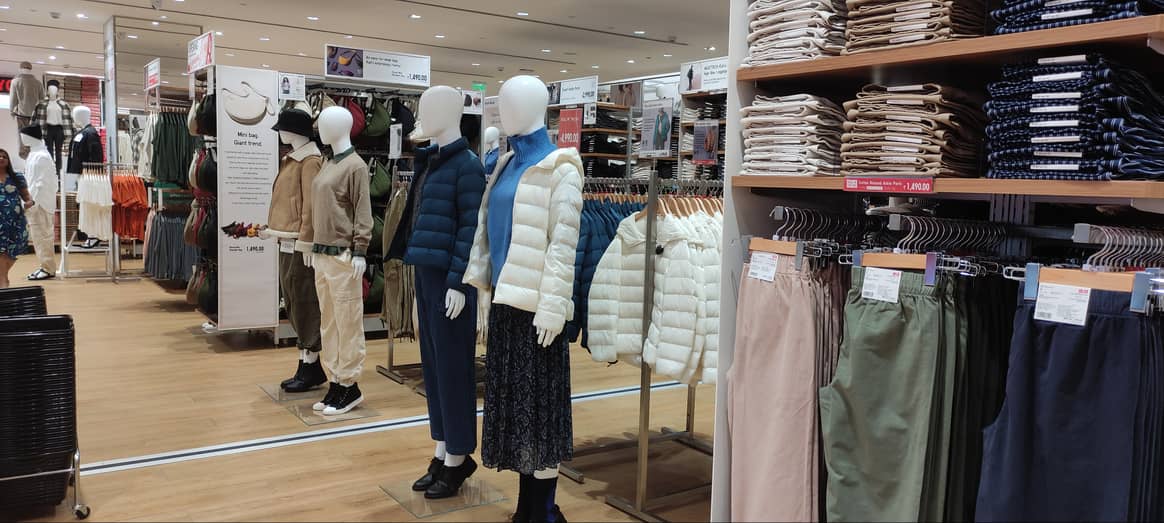
“We are thrilled to be opening our much-awaited first Mumbai store,” said Uniqlo India CEO Tomohiko Sei in near fluent Hindi after greeting the press delegation with a friendly “namaste”. The brand is starting in Mumbai after the first store opened in Delhi four years earlier in October 2019. Two years later, the e-commerce store launched, revealing Mumbai sales on par with Delhi despite not having any physical retail presence.
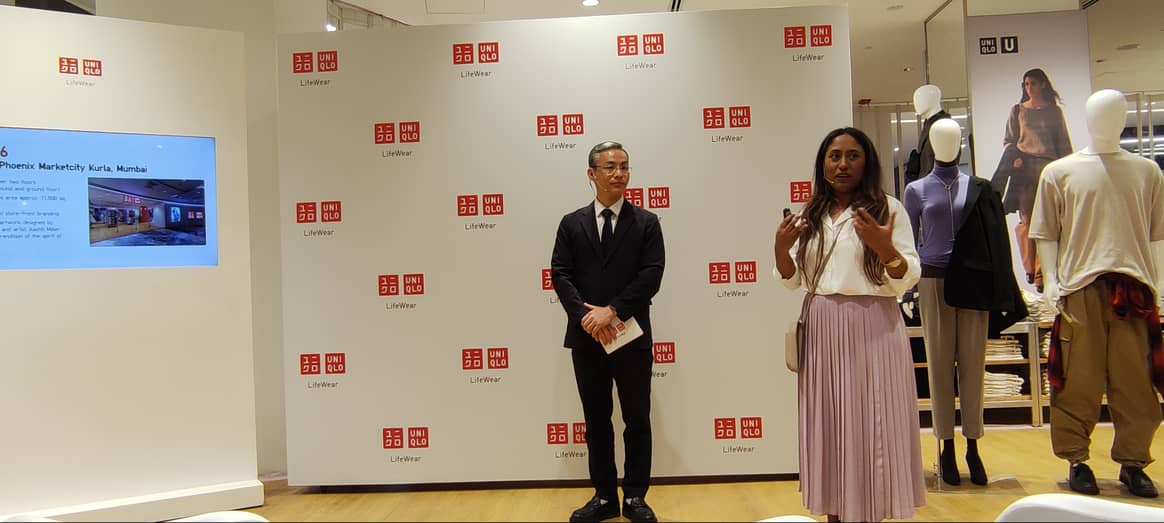
“From seeing strong demand on our e-commerce channel to now launching brick-and-mortar stores in Mumbai, we are delighted to bring our new LifeWear to Mumbaikars and look forward to supporting their daily lives,” added Sei.
Goals for Mumbai
The new store at Phoenix Market City is spread across 11,500 square feet (almost 1,070 square meters) over two floors. It offers a range of LifeWear collections for men, women, children and babies. It also presents the special Uniqlo x Kaws collaboration UT t-shirt collection as well as the UT collection based on the popular TV anime “Jujutsu Kaisen” and Japanese artist Hokusai.
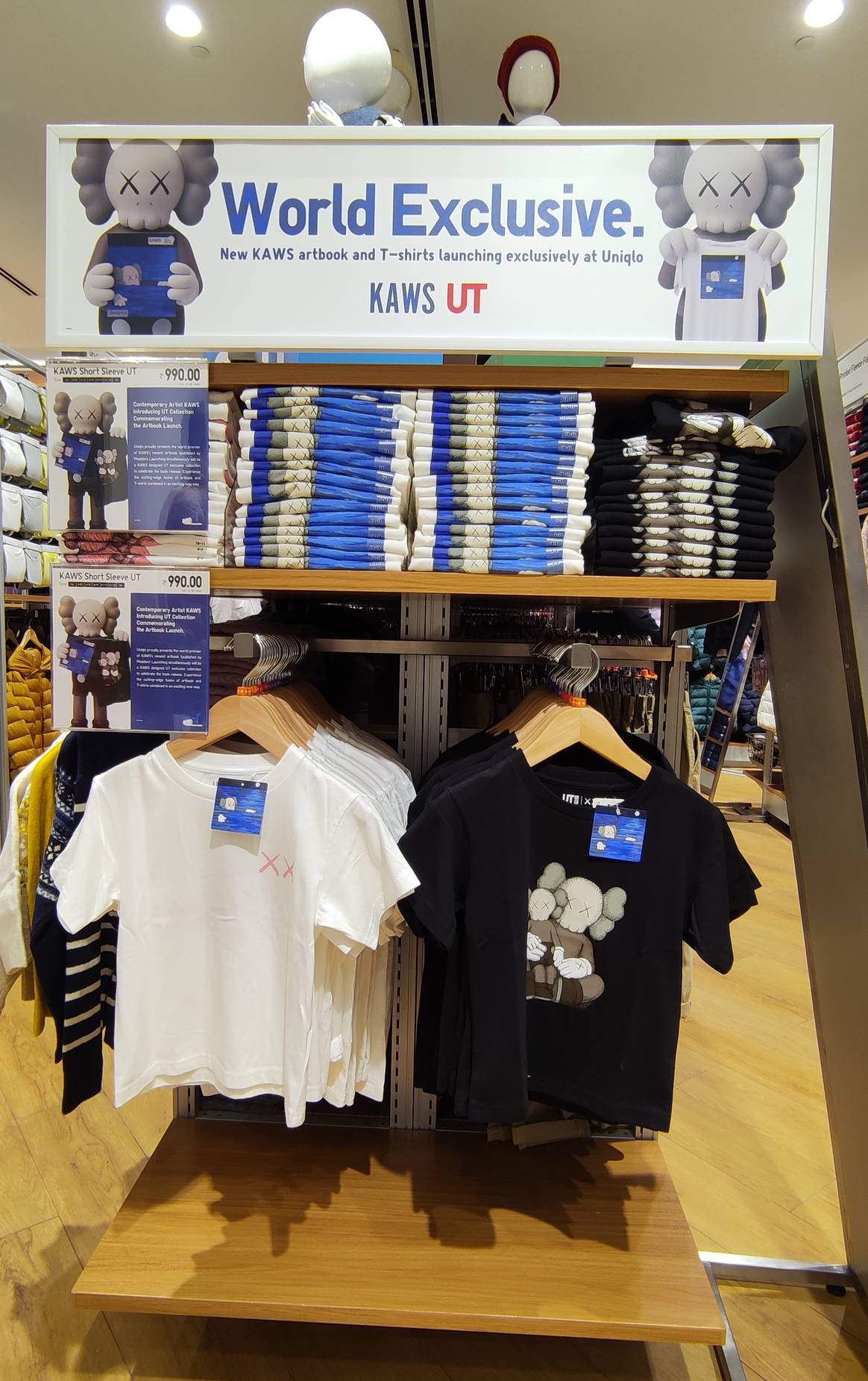
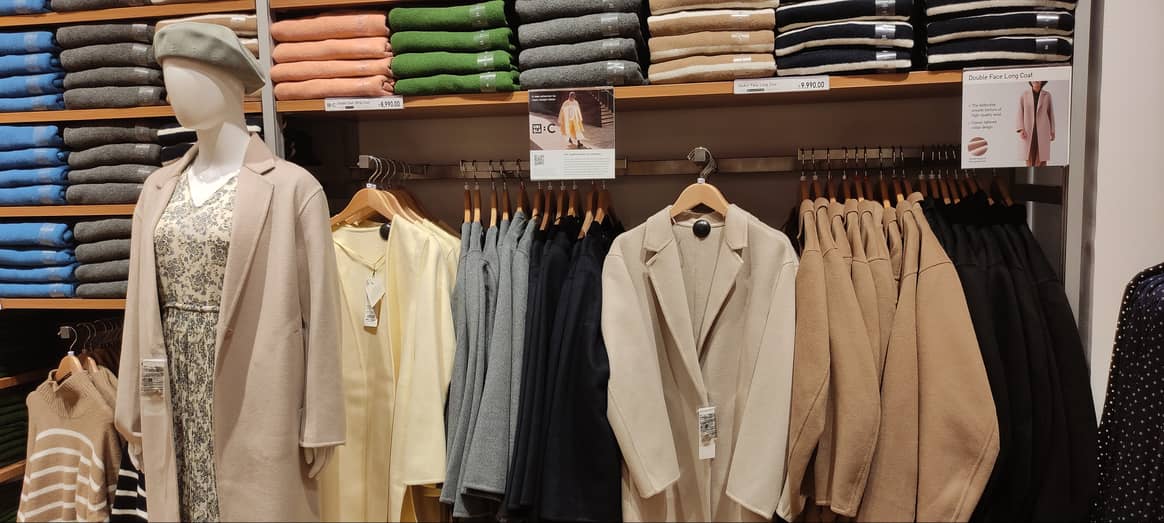
Among the goals for Uniqlo in Mumbai, Sei mentioned to build the LifeWear concept, providing functional and high-quality clothing as well as expanding the store network. “ We would like to tap into different geographies within Mumbai,” confirmed the brand.
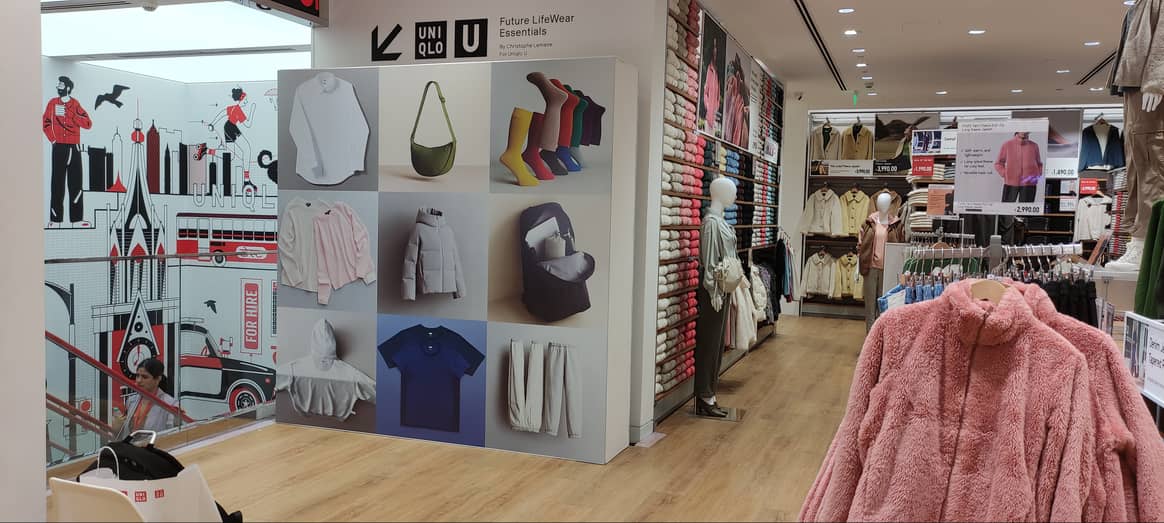
Nidhi Rastogi, marketing director for Uniqlo India, emphasised the LifeWear approach, which is to make customers’ lives better with clothing. Thus, it focuses on five areas: customers’ needs, constant innovation, being ingenious in detail, highest quality and being able to complement any style. She mentioned non-iron shirts, anti-slip socks and the Ultra Light Down jacket as examples of clothing that makes people’s life easier.
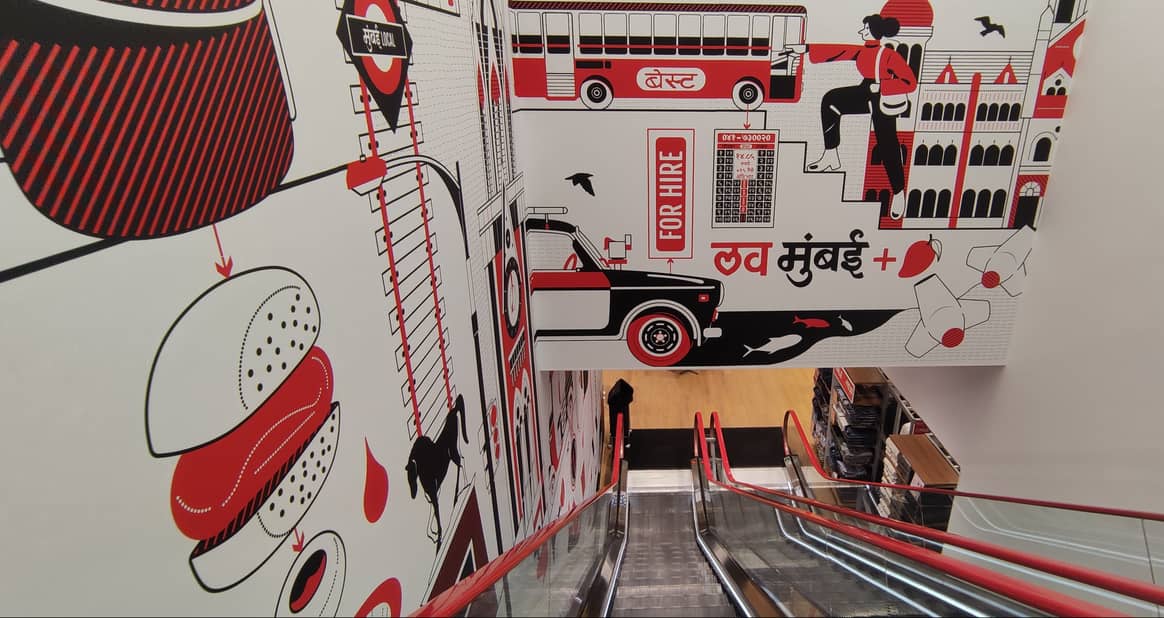
In Mumbai’s hot and humid climate, the brand’s AIRism line of lightweight fabrics is also popular as articles are sweat absorbing, quick drying, anti-odour, moisture wicking, smooth and cool to touch and stretchable. Surprising may be that fall/winter items like the Ultra Light Down jacket, Heattech articles and fleece are top sellers too but that easily be explained with Mumbaikars loving to travel – to cold places especially.
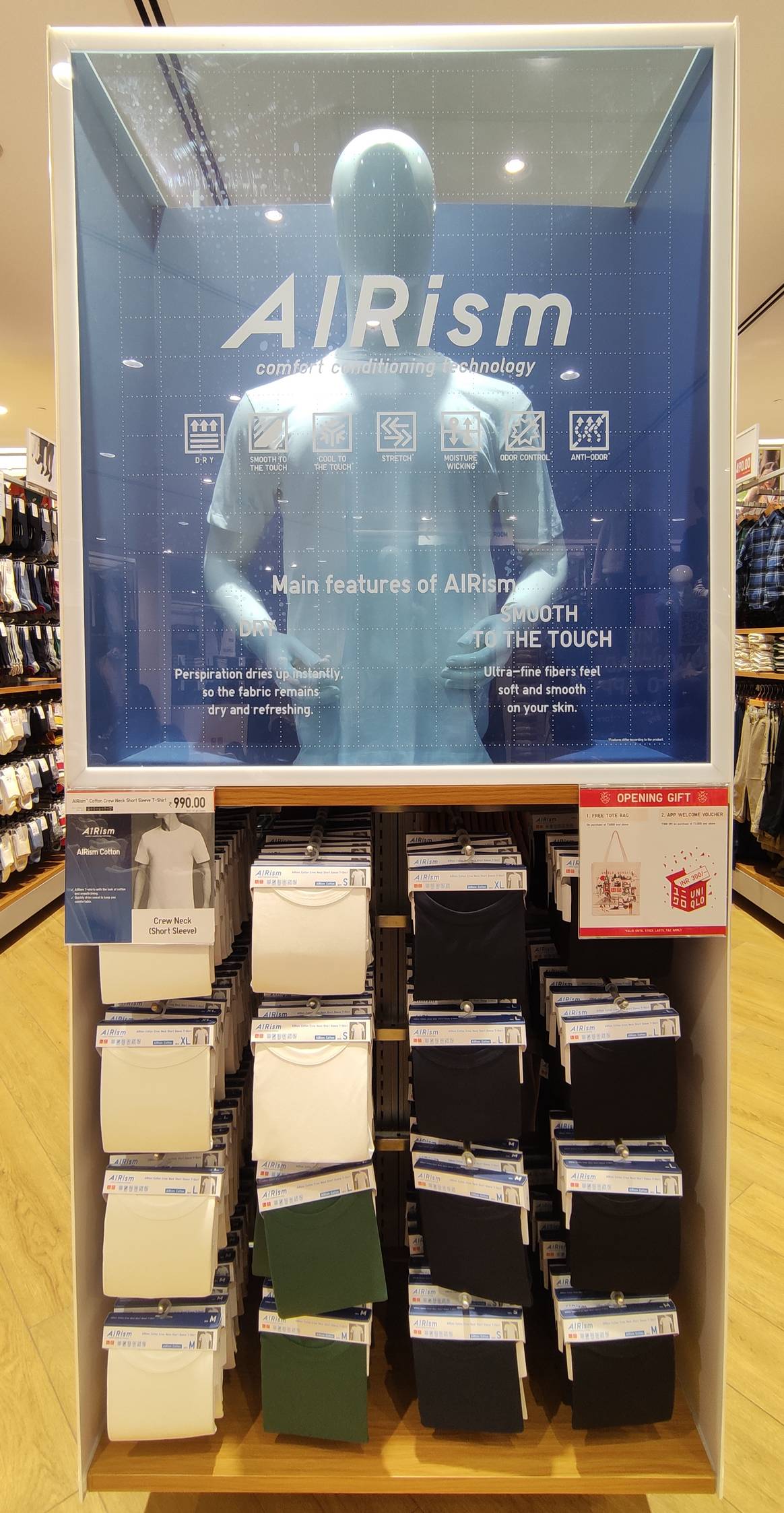
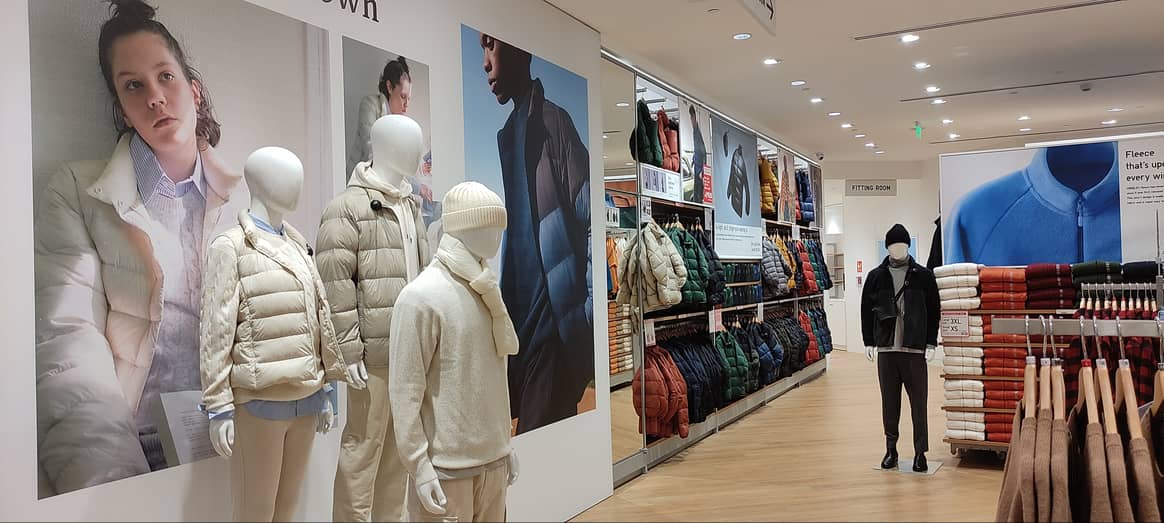
Asked about sizing for the Indian market – an oversight that has cost many European brands dearly – Sei confirmed that there are two sizing models, one for the European and US market and one for Asia. “Before coming to India, we have done a lot of research and realised that India sizes are very different and more diverse. While the Asia specification is more suitable for this market, we had to expand it and add an XS and XXL size,” explained Sei.
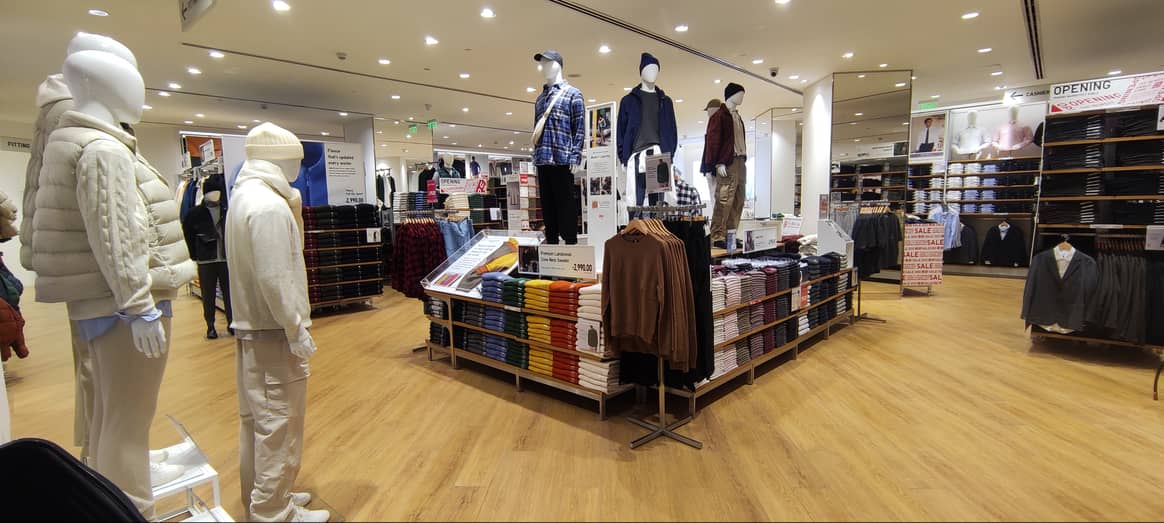
Vision for India
As far as Uniqlo’s vision and journey in India is concerned, Sei highlighted three key objectives: growing the network of stores, growing with the Indian community and growing production in India with the ultimate goal to become the No. 1 brand in India. Sei clarified that this not only includes sales and profit but also trust. “Just pushing product is not enough,” said the Uniqlo India CEO.
In terms of growing with the Indian community, Sei mentioned that Uniqlo’s parent company Fast Retailing donated 220 million rupees for Covid relief in India in May 2021. Part of investing in the community and in the country is also the partnership with 17 sewing factories and six fabric mills.
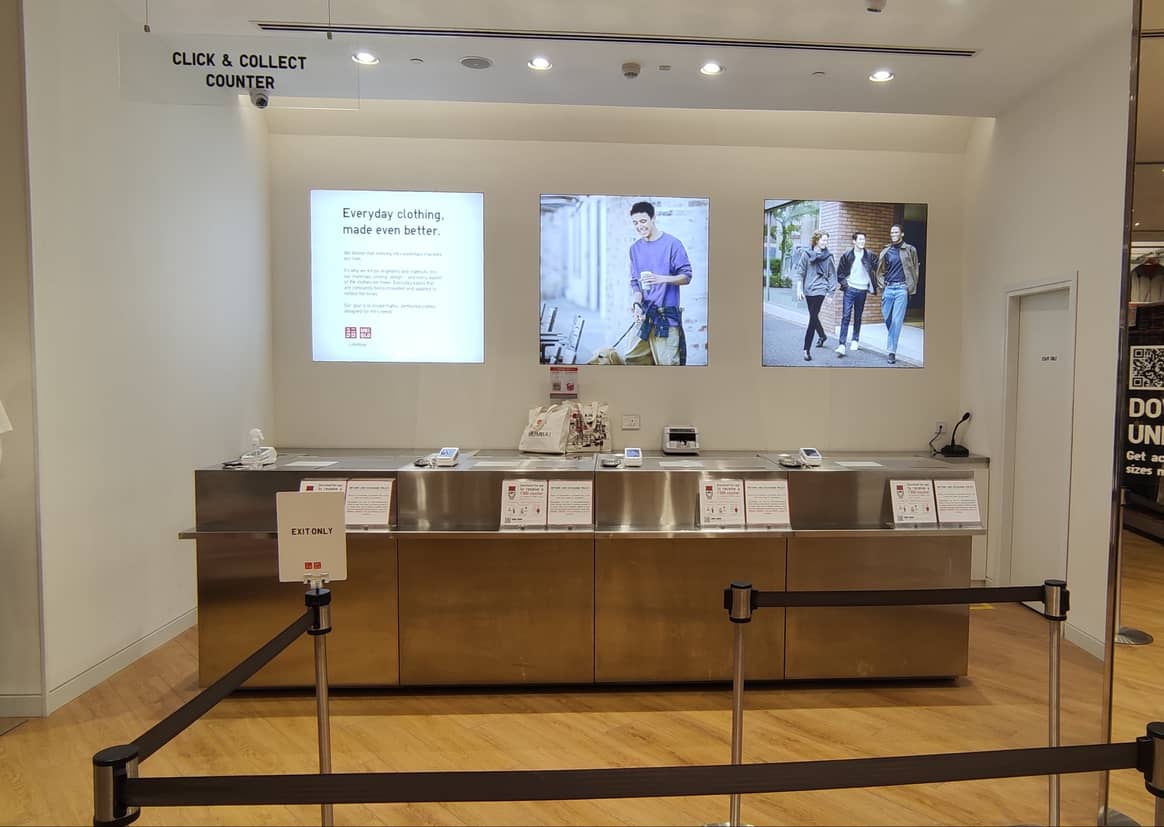
Expanding production
In this context, Sei mentioned three promises that Uniqlo has made in terms of quality, expanding its production, which also means more local job opportunities and developing Indian talent, not only for Indian stores but globally. Sei hinted that expanding production in India could change the brand’s reliance on China as a production hub and confirmed that clothing produced for the brand in India is exported to other markets already.
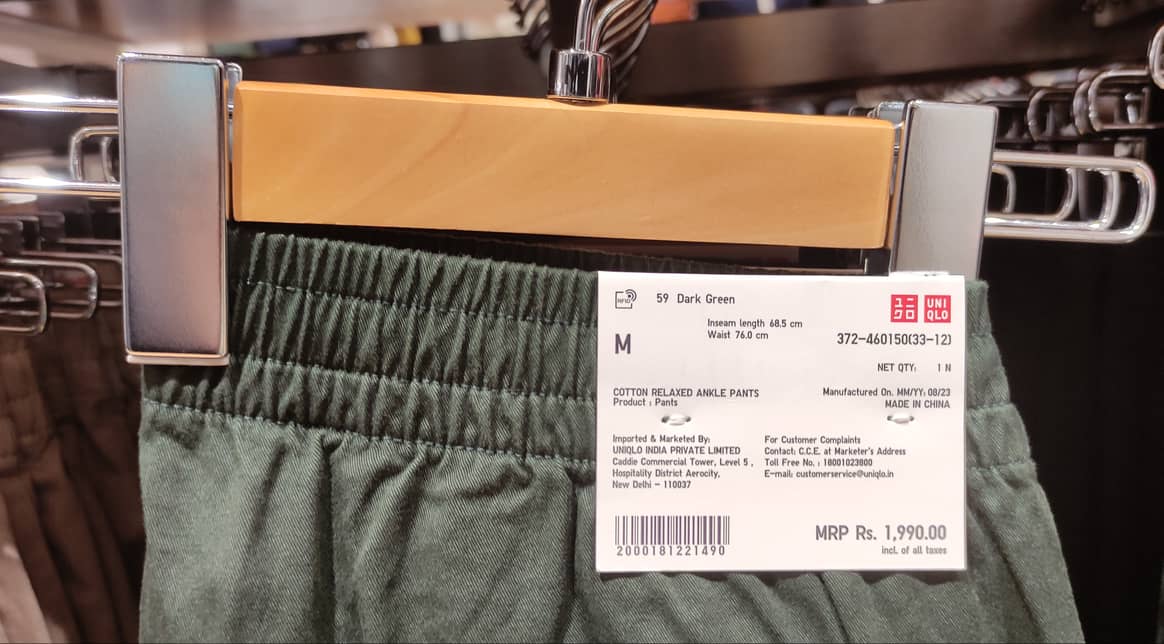
With seven stores in the Delhi NCR region, the brand is now ready to look at a similar expansion in Mumbai though Sei did not have any concrete figures beyond the two this month. He did, however, empasize that growing the store network would depend on good partners and high-quality people with efforts dedicated to developing store managers. With one store each in the tier-2 cities Chandigarh and Lucknow and the first highway store in Zirakpur close to Chandigarh, this will bring the brands store total in India to twelve.
“India is a big opportunity and an important market, not only for Uniqlo but for everyone,” said Sei, pointing to the country’s strong economic growth and brand awareness as well as diverse interests by customers. When asked why Uniqlo has been relatively low-key for the last four years, Sei admitted that it is still behind in brand awareness and that more needs to be done in the future.
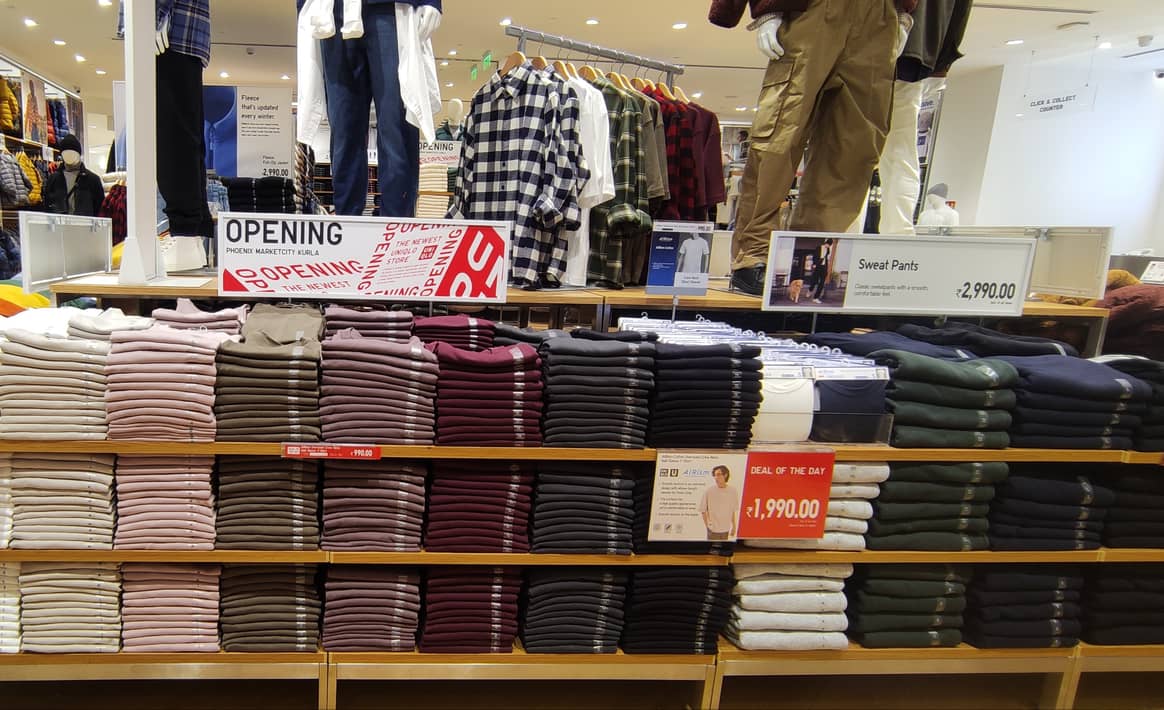
In view of the competition, Sei agreed that “everybody is very strong,” pointing to the history that local brands have in the country. But he is confident that with its affordable and reasonable prices, especially in view of the high quality offered, Uniqlo will make its mark in the market. “Indian customers are quality-conscious, not bargain-conscious,” he said and acknowledged that the need to feel a fabric before buying clothes is characteristic for Indian customers.
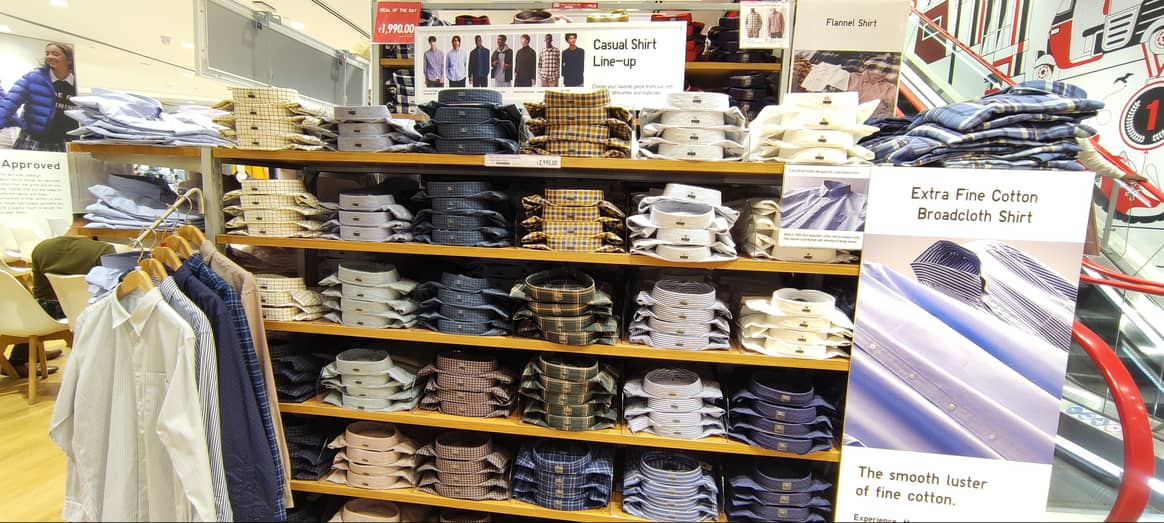
Uniqlo’s store network in numbers
With almost 1,000 stores (996), the brand has the largest store network in greater China, followed by Japan with 809 stores. The South Asia, Southeast Asia and Oceania region follows in some distance with 293 stores, followed by 122 stores in South Korea, 115 in Europe and 59 in North America.
